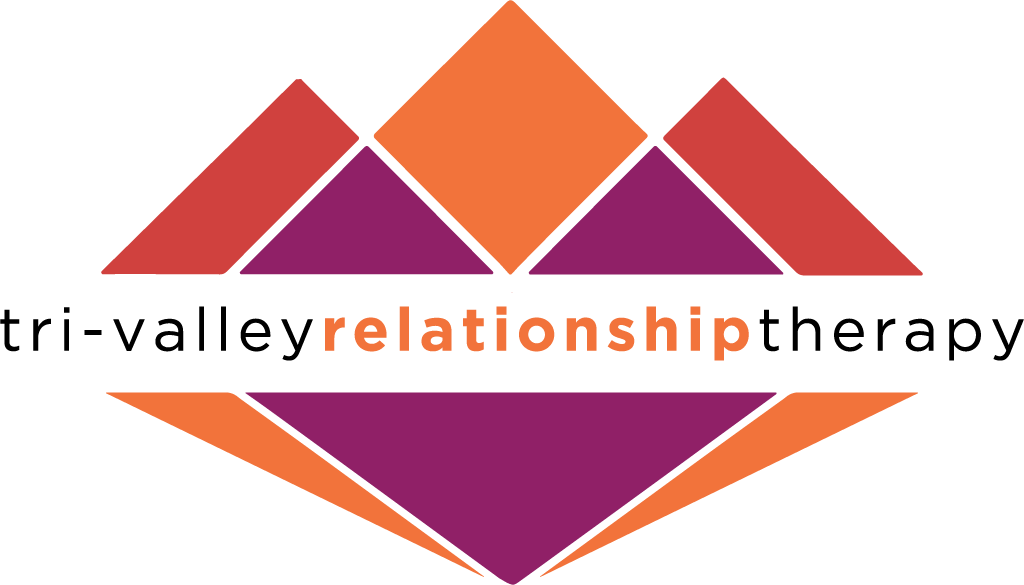How To Talk To Your Partner About Opening Your Relationship
Couples counseling at Tri-Valley Relationship Therapy can help you talk to your partner about opening your relationship and help you both explore your feelings & concerns in a safe space.
Talking to your partner about opening up your relationship can be very intimidating. People interested in having a discussion with their partner about opening up their relationship fear their partner’s response which could range from outright rejection of the idea to thoughts of ending the relationship.
The conversation could bring up feelings of anger, sadness, betrayal, and abandonment.
Before initiating the discussion, it’s helpful to explore and understand the “why” behind your desire for opening up. In the last two articles, I shared some good and bad reasons for opening up a relationship. By having clarity about why opening up the relationship would be helpful, you will be in a better position to convey your feelings in a clear and composed manner.
Here are some pointers on how to talk to your partner about opening up:
Test the waters-
A few good ways in which you can test the waters is to share a fantasy you might have about bringing other people into the relationship or refer to a show/movie you may have watched or an article that you read about open relationships. If you have friends that are in open relationships, you can refer to their relationship structure to get an idea of your partner’s general reaction and feelings about the topic.
Don’t make it personal-
This is where knowing why you want to open up comes in handy because by conveying one or a few good reasons for opening up your relationship, your partner is less likely to feel that it’s their fault. The initial response of your partner could be rooted in defensiveness, which you can mitigate by reiterating that you are not blaming them for your interest in opening up.
Clarify what you are looking for-
Open relationships are mainly focused on sharing a sexual connection with partners outside of the primary relationship, whether the couple engages with such partners together or separately. Being in a polyamorous relationship, on the other hand, is about sharing love, emotional intimacy, connection and sex with multiple partners outside of the primary relationship.
Be patient-
Allow your partner to digest and process the initial discussion because it will be a lot to take in and they might feel blindsided by your desire to open up. Please don’t be pushy or give ultimatums. Even if it takes years for your partner to come on board with the idea of opening up- show your partner that you truly love them and willing to give them the time they need. During this time, it’s important to respect the boundaries of your monogamous relationship and not engage in non-monogamous behavior, without your partner’s consent.
Reassure-
Your partner is going to feel insecure and unsure about the relationship because of the initial shock of finding out that you would like to find sexual and/or emotional connection outside of the relationship. Go to great lengths to reassure them that no one will replace them in your life and that all other relationships will always be secondary to your relationship with them. Don’t expect your partner to feel reassured overnight- be prepared to continue to reassure them over a long period of time.
Boundaries & ground rules-
If your partner agrees to give an open relationship a try, it’s imperative to have a discussion about boundaries and ground rules for opening up. Successful open relationships are built on the foundation of honesty, openness, transparency, and trust. Some things to discuss regarding ground rules could be how many partners can you both have outside of the relationship, are you both going to engage with those partners together (threesomes or swinging) or separately, how much to share with each other about your experiences, if sleepovers and weekend getaways with secondary partners are allowed etc.
Safety-
Partners in an open relationship are collectively responsible for the safety of everyone involved in terms of prevention of transmission of sexually transmitted infections. It’s best to be upfront about your expectations regarding sharing test results and using condoms and other barriers (such as dental dams) in all instances involving body fluids. You are not only responsible for protecting yourself from exposure to potentially chronic & serious infections but also accountable for safeguarding your partner’s health.
Seek other couples for support-
Couples that are new to open relationships can find great support in having a network of other couples in open relationships. Such networks and friendships can provide a safe space for both partners to be able to express their feelings- both positive & negative and also receive guidance about navigating the exciting yet complex world of open relationships.
You can access this article and other articles written by Dr. Nagma Clark on the Let's Talk Sex blog on Psych Central by clicking on this link:
Written by: Nagma V. Clark, Ph.D., L.P.C.C. specializing in sex therapy, couples therapy & marriage counseling, premarital counseling, individual relationship therapy & LGBTQQI couples counseling at Tri-Valley Relationship Therapy, Inc. in the East Bay, in Dublin & Oakland.
If you or your partner would like to explore opening up your relationship or need help with a relationship issue or concern, sex therapy & couples counseling at Tri-Valley Relationship Therapy, Inc. in the East Bay can help. Dr. Clark has advanced & specialized training in sex therapy & couples counseling and she has helped many couples & individuals resolve their sexual concerns.
Call 925-400-3541 or email doctor.nvclark@gmail.com to schedule a free 15-minute phone consult or fill out the contact form and you will be contacted within 12-24 hours.

